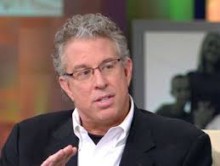 On Sunday, I uploaded a blog post about recovery advocate Meghann Perry. In 2009, Meghann ‘was in jail, facing a 5-year prison sentence for selling crack, after decades of profound chaotic substance use and everything that comes with it.’ In 2011, she changed her relationship with substances and started to rebuild her life.
On Sunday, I uploaded a blog post about recovery advocate Meghann Perry. In 2009, Meghann ‘was in jail, facing a 5-year prison sentence for selling crack, after decades of profound chaotic substance use and everything that comes with it.’ In 2011, she changed her relationship with substances and started to rebuild her life.
Today, Meghann has her own successful business as a consultant, curriculum developer, and facilitator. She says on her website:
‘Through unique, creative, authentic training, workshops, and programs, I’m changing the culture through new approaches to support individuals and organizations in their process of transformation from survival, to thriving. This is recovery.’
One of Meghann’s approaches involves storytelling—her initiative really excites me. I’m also thrilled to see that Meghann has been working with CCAR (Connecticut Community for Addiction Recovery), whose Executive Director is Phil Valentine. I’ll be returning to this relationship in a future blog post.

 It’s always wonderful to see new initiatives developed by people in recovery. Here is someone who has been doing lots since she began her recovery journey. I am in awe after reading this recent Facebook post from Meghan Perry about the initiatives that she has developed or been involved in over the years since she found recovery.
It’s always wonderful to see new initiatives developed by people in recovery. Here is someone who has been doing lots since she began her recovery journey. I am in awe after reading this recent Facebook post from Meghan Perry about the initiatives that she has developed or been involved in over the years since she found recovery. Recently, I read one of the best books I have read relevant to my work. The book,
Recently, I read one of the best books I have read relevant to my work. The book, 




